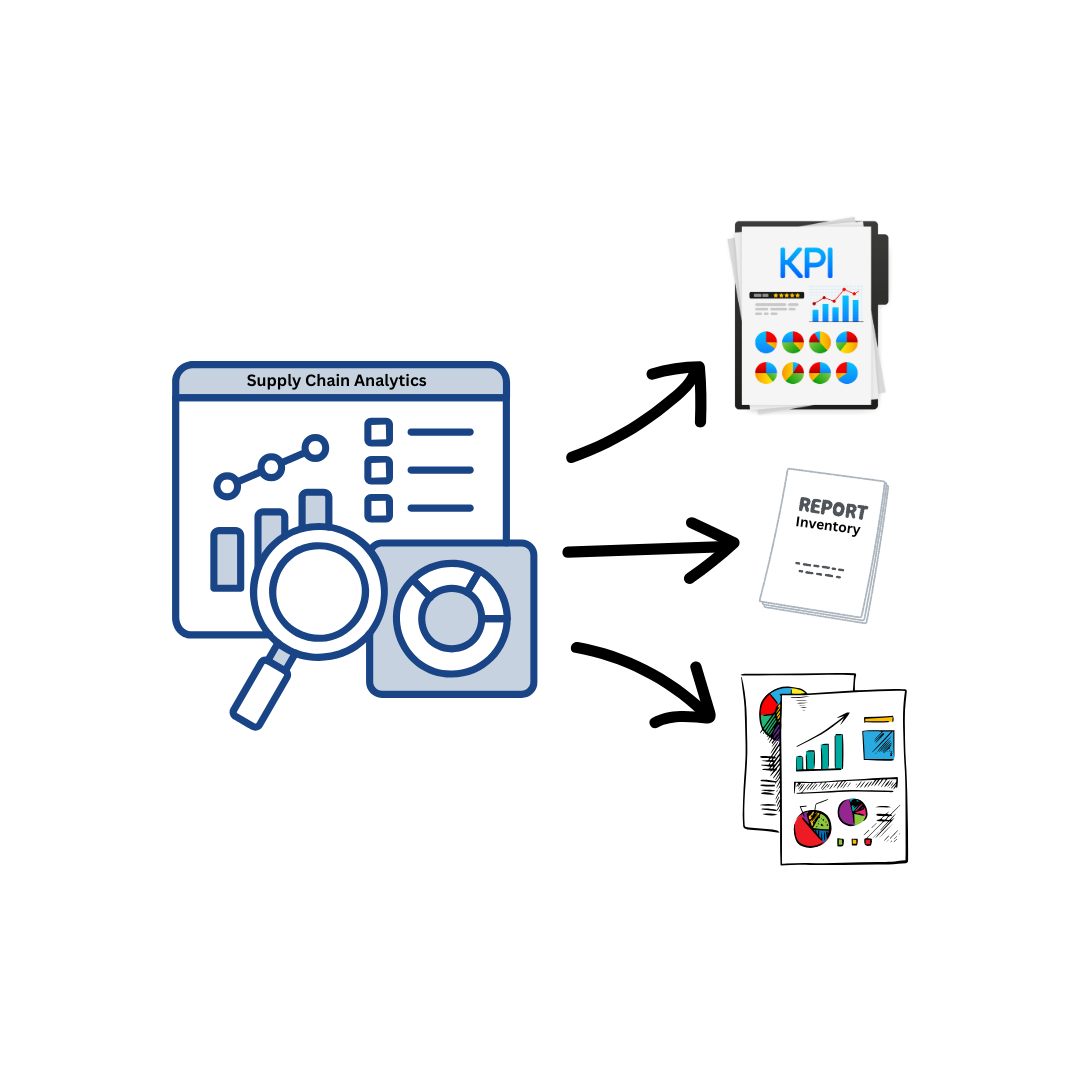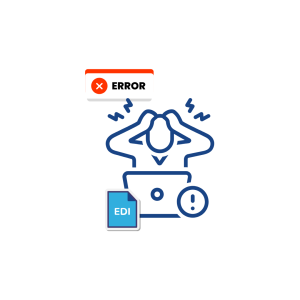Introduction
The Importance of Supply Chain Analytics

There are two main reasons why businesses should invest in supply chain analytics. First, supply chain analytics helps companies make better decisions regarding where to source products and how much to order. Second, supply chain analytics provides visibility into the operations of the company itself. By understanding what goes wrong with the supply chain, companies can take steps to prevent future issues.
The Benefits of Supply Chain Analytics
Companies that use supply chain analytics benefit by being able to make more informed business decisions. They also gain insight into the operations of their own company. This allows them to identify areas where improvements can be made. Finally, supply chain analytics gives companies an opportunity to improve customer service. If a company knows exactly where its products come from, then it can provide customers with more accurate information about the product.
1. Gain competitive advantage
Companies that use their data to gain insights using supply chain analytics gain competitive advantage by accurately forecasting demand according to rapidly changing market demands. The four primary methods of gaining a competitive advantage are cost leadership, differentiation, defensive strategies and strategic alliances .
2. Drive overall business growth and profitability
By optimizing supply chain operations, improving customer service, reducing costs, and making informed decisions based on data-driven insights using supply chain analytics can help businesses achieve growth and profitability.
3. Improve supply chain visibility
Supply chain visibility can provide real-time tracking and visibility of shipments, enabling companies to quickly identify and resolve any issues that may arise. This can be achieved by Implementing real-time tracking and monitoring systems, Collaborating with partners and standardizing the communications.
4. Enhance supply chain efficiency
In simple terms supply chain efficiency means maximizing your supply chain output by reducing costs. It is the way in which the resources are optimized to deliver goods and services to customers faster and on time with minimal cost. Supply chain analytics can play a significant role in improving overall supply chain efficiency
5. Optimize inventory management
Automated inventory management help track and manage inventory in real time, ensuring that they have the right products in stock at the right time. It can also help businesses to reduce waste and improve efficiency by ensuring that inventory is used efficiently and effectively.
6. Reduce supply chain costs
Supply chain analytics can help businesses identify inefficiencies and bottlenecks in their supply chain operations, enabling them to reduce costs and improve profitability.
7. Increase supply chain resilience
Supply chain analytics can help businesses increase their supply chain resilience. Identifying and managing risks, Enhancing supply chain visibility, Improving supplier collaboration, Developing contingency plans and Increasing supply chain flexibility.
8. Better understand customer demand
Accurate demand forecasting is critical for businesses, as it can help to ensure that they have the right products and resources in place to meet customer demand and maximize profits. Businesses may need to use a supply chain analytics solution to accurately map demand forecasting.
9. Improve supplier performance
With supply chain analytics, businesses can benchmark supplier performance against industry standards or best practices. This can help them identify areas where their suppliers are under performing and take steps to improve their performance.
10. Enhance transportation management
Supply chain analytics can enhance transportation management, help optimize their shipping routes and reduce costs by finding the most efficient and cost-effective carriers.
11. Improve order fulfillment
Supply chain analytics can help businesses identify patterns of errors in order processing and fulfillment by forecasting demand, optimizing inventory levels, reducing lead times, tracking order status, and improving order accuracy.
12. Identify and mitigate supply chain risks
Supply chain analytics can help businesses identify and mitigate supply chain risks by analyzing supplier performance, assessing supplier financial stability, monitoring geopolitical risks, analyzing customer demand, and developing contingency plans.
13. Improve forecasting accuracy
Supply chain analytics can help businesses improve forecasting accuracy by analyzing historical data, incorporating external data, using predictive analytics, collaborating with partners, and continuously improving their forecasting processes. This can help businesses reduce inventory costs, improve customer satisfaction, and increase revenue.
14. Streamline production planning
Streamline production planning by optimizing production schedules, identifying production bottlenecks, improving inventory management, reducing lead times, and improving quality control. This can help businesses increase efficiency, reduce costs, and improve customer satisfaction
15. Optimize warehouse operations
Supply chain analytics can help businesses identify areas where automation can improve warehouse operations. By automating processes such as order picking and inventory management, businesses can increase efficiency and reduce costs associated with manual labor.
16. Increase supply chain flexibility
Businesses increase supply chain flexibility by providing real-time visibility, using predictive analytics, collaborating with partners, scenario planning, and increasing agility and responsiveness. This can help businesses improve customer satisfaction, reduce costs, and increase competitiveness.
17. Improve product quality control
Supply chain analytics can help businesses improve product quality control by enabling real-time monitoring, optimizing processes, tracking supplier performance, performing root cause analysis, and automating quality control processes. This can help businesses reduce costs associated with rework and scrap, improve customer satisfaction, and increase competitiveness.
18. Better manage supply chain disruptions
Supply chain analytics can help businesses better manage supply chain disruptions by identifying and monitoring risks, scenario planning, providing real-time visibility, collaboration, and using predictive analytics. This can help businesses reduce the impact of disruptions, increase supply chain resilience, and maintain customer satisfaction
19. Enhance collaboration with suppliers and partners
Supply chain analytics can help businesses enhance collaboration with suppliers and partners by sharing data, tracking performance, optimizing processes, collaborative planning, and risk management. This can help businesses improve supply chain efficiency, reduce costs, increase customer satisfaction, and maintain a competitive advantage.
20. Increase customer satisfaction
Supply chain analytics can help businesses increase customer satisfaction by improving order fulfillment, providing real-time visibility, improving product quality, faster problem resolution, and personalization. By improving customer satisfaction, businesses can increase customer loyalty, reduce churn, and grow their business
21. Improve sustainability and environmental impact
Supply chain analytics can help businesses improve sustainability and reduce their environmental impact by tracking their carbon footprint, sourcing sustainable materials, reducing waste, optimizing energy usage, and monitoring compliance. By improving sustainability, businesses can demonstrate their commitment to social responsibility and differentiate themselves in the marketplace.
Frequently Asked Questions
Supply chain analytics is the analysis of information companies draw from a number of applications tied to their supply chain which includes inventory management system, order management system, warehouse management system and many more!
Business Analytics is the process by which businesses use statistical methods and technologies for analyzing historical data in order to gain new insight and improve strategic decision-making.
A Supply Chain Dashboard is a reporting tool used to track supply chain KPIs and metrics in a single display or interface. Supply chain dashboards track inventory levels, logistics management, and warehouse operations.
By analyzing customer data, supply chain analytics can help a business better predict future demand.
Commport Business Analytics allows you to leverage visual supply chain and organizational spend data, giving decision makers powerful intelligence to make better strategic decisions.





